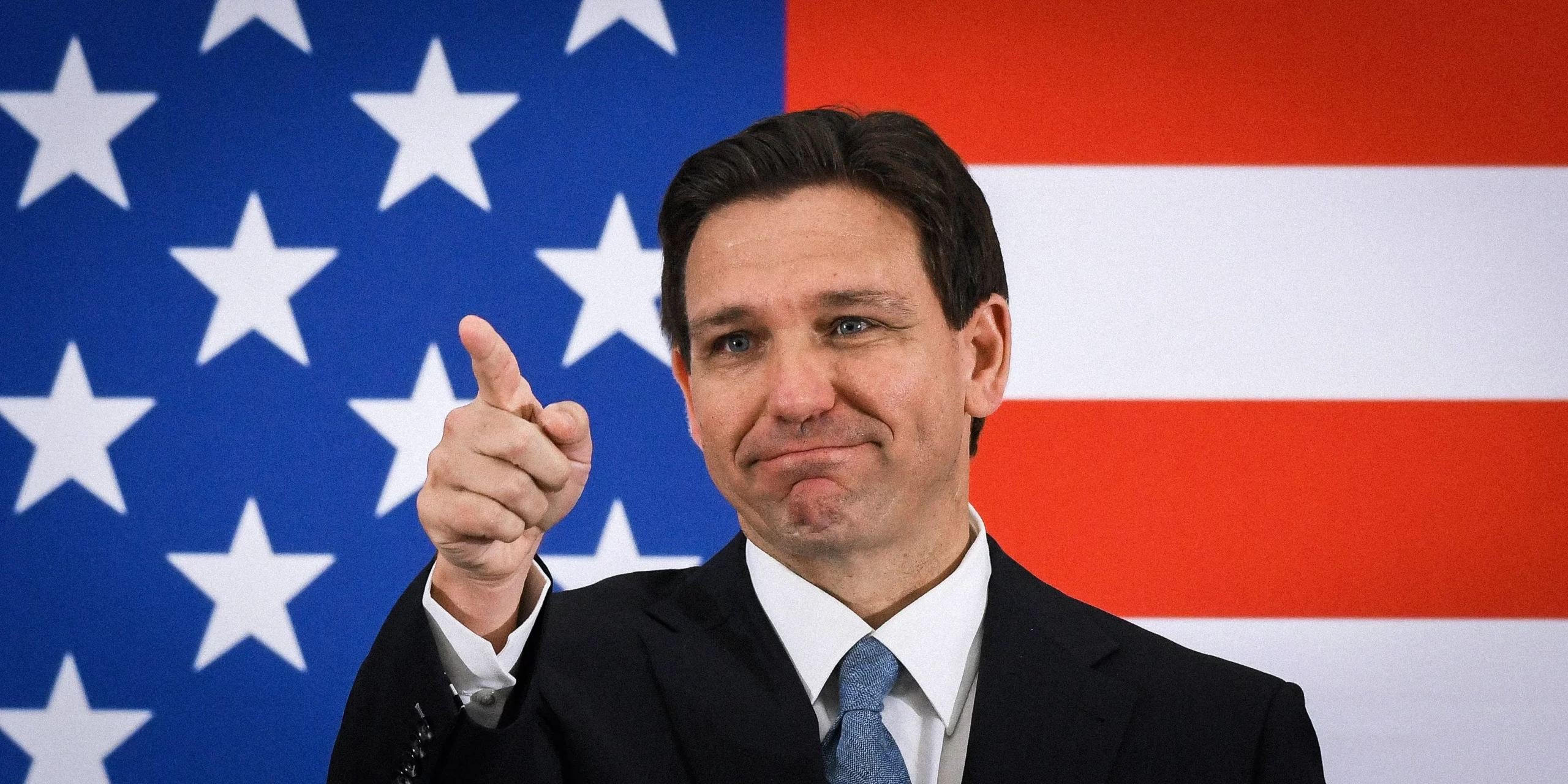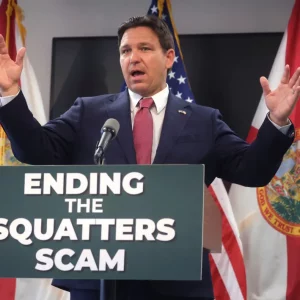Traditional conservative voters wanted to be excited about Ron DeSantis. Independents and fed-up Democrats wanted him to be tolerable. His recent tack to the hard right is pushing these crucial voters away.
With about half the country identifying as Independent voters, the path to victory for any major candidate in a general election must involve winning over a majority of these voters. For a plethora of reasons, these voters do not wish to associate themselves with either of the two major parties, which should be a sign to both Republicans and Democrats that they are doing something wrong by failing to establish a broader coalition.
However, looking at who won Independent voters in past elections can be a major help for parties deciding what platform to pursue to appeal to Independents. In 2016, Independent voters broke for Trump in 2016, while they overwhelmingly voted for Democrats in the 2018 midterms, and a majority for Biden in 2020. So even if a large portion of the population likes neither candidate, the only thing parties have to do is be more appealing to Independent voters rather than winning over more voters on either side, which usually involves less fringe policies and more common sense solutions. Biden was able to appeal to Independents in 2020, largely because of Trump’s unpopularity with Independents, but Biden’s recent approval ratings among Independents are incredibly precarious for anyone trying to win over this crucial voting bloc. Where Biden and Trump have recently been struggling with Independent voters, one candidate had the potential to win big in a general election due to past support from Independents and strong support from his own party.
Winning 52% of Independent voters in his reelection for Florida Governor in 2022, and an Independent approval rating of 43% (compared to Biden’s and Trump’s 32%), Governor Ron DeSantis was well positioned as a strong candidate in the GOP primary and an even stronger candidate for a general election against Joe Biden due to his overwhelming support in the crucial swing state of Florida, and his staunch and fairly successful conservative record as governor.
As a graduate of Yale University and Harvard Law School, a former US Navy JAG corps officer, and as a father in a seemingly picture-perfect family, DeSantis has the kind of backstory any politician would kill for and this helped him shoot to GOP stardom in his first term as Florida governor, along with a policy record that moved many Independents to vote for him in 2022. However, DeSantis’ recent rightward shift in policy that strays from many core-Conservative values since declaring his run for president in the summer is not one that is likely to be viewed fondly by moderate Independents, right-leaning Independents, moderate Republican voters, and even many Reaganist Conservative voters. While this strategy could help him win a GOP primary thanks to the hard-right populist segment of the GOP that is more inclined to vote in the primary, this strategy could sour on him in the general, where he would inevitably have to tone down his current message in order to appeal to Independents. DeSantis is running a dangerous risk that could cost him not only the presidency, but could also very well cost him his high approval ratings and wide winning margins in Florida.
Before DeSantis began his run for president in May, he was able to drastically expand his winning margin for Florida Governor in his 2022 reelection by passing policies that were widely viewed as beneficial all for Floridians, as well as policies that were considered wins for conservatives across the state that made the GOP even more excited about a potential DeSantis 2024 presidential campaign. Whether you like DeSantis or not, his policies that helped retain a strong budget surplus while also providing tax relief, restoring the Florida Everglades, protecting Florida’s water resources, his infrastructure initiative, and his raising of the minimum wage to $15 an hour for state employees were initiatives that Floridians could get behind no matter their political affiliation.
DeSantis’ more conservative work as governor has excited GOP voters who want to return to a Republican party built on conservative principles like small government and public safety. DeSantis’ COVID response was one prominent example of a winning strategy for the GOP, as DeSantis’ decision to keep Florida open was celebrated by many Florida citizens as a victory for liberty over lockdowns, and was seen as a main reason for the massive influx of migration to Florida from states that imposed lockdowns, like California and New York. Additionally, COVID studies show that Florida did not fare much worse than most lockdown states, and even had less impact from COVID than many of these other states as it was ranked 31st in overall deaths adjusted for age (Florida, with a very large elderly population, was dealt an unfortunate hand with COVID), and their death rate was below the national average. Conservatives lauded DeSantis’ decision to keep schools open, pointing to the fact that school closures have massive repercussions on childhood learning and development, with school closures becoming a winning issue for Republicans nationwide (i.e., Glenn Youngkin’s upset win in Virginia in 2021). In 2022, DeSantis provided another win for many conservatives when signed a 15-week abortion ban and kept it that way for long after Roe v. Wade was overturned—a policy that is largely popular across the country, no matter your party (for reference, most European nations outlaw abortion after 15 weeks, and 93% of abortions happen in these first 15 weeks). Many Conservatives also used DeSantis’ support for law enforcement as a major model for the party going forward, as his policy that provided incentives for police officers in Florida caused an exodus of NYPD officers to Florida (whether you agree with this policy or not, this move was fantastic politics). From then on, DeSantis not only strengthened his support among law enforcement, but crime in Florida is at a 50-year low and law enforcement officers are seeing new increases to their bonuses and salaries. Despite this litany of accomplishments, Ron Desantis’ record is playing second-fiddle to his recent shift rightward in policies on abortion, his isolationist takes on foreign policy, and his inability to distinguish himself as an alternative to Trump become the most glaring red flags to the large groups of Independent and traditional Conservative voters he needs to win over.
DeSantis’ first major mistake—that will haunt him should he make it to the general election—was getting rid of his 15-week abortion ban in Florida and replacing it with a 6-week ban. Republicans fought for decades to overturn Roe v. Wade in order to return the decision of abortion restrictions back to the states; it has in fact never been the goal for the mainstream Republican party to outlaw abortion nationwide. Now that the main goal of Roe’s demise has been satisfied, states and politicians have been put to the test to see how far to go with abortion bans. Ron DeSantis opted for the more popular option of abortion restrictions in his first term as governor, keeping the limit at 15 weeks, but chose to push the envelope when he signed a 6-week abortion limit bill (mind you, right before he jumped into the Republican primary), which is a much less popular option. Since DeSantis decided to take this hardline stance in his home state of Florida (again, a major swing state), then the question will inevitably come up to DeSantis on whether or not he supports any federal restrictions on abortion. We know that strict federal bans on abortion are not popular, and frankly against what Republicans have been arguing for for years, as Roe has been an argument framed around state’s rights, rather than around outlawing abortion nationwide. When asked about his support or opposition to a federal abortion ban in July, DeSantis failed to provide a clear answer, angering the pro-life group Susan B. Anthony Pro-Life America, and left voters who care about abortion access or state’s rights with abortion confused and weary. Rather than providing a clear answer as to what he would support, or say, if an abortion ban bill happened to fall on his desk in the Oval Office, he obfuscated, pledging to be a “pro-life president” who is running on things he knows he can get done. In this interview, DeSantis also claimed the pro-life movement was a “bottom-up” movement, which presumably means that he believes abortion can be banned nationwide with states individually taking action on abortion bans. However, this may not present convincingly to the Susan B. Anthony group as long as support for some abortion remains very high in the U.S. and as long as Democrats and moderate Republicans continue to govern in more than half of the states. It is evident here that DeSantis knows the vulnerable position he is in here; he must take a hard enough stance on abortion to gain support of the hard right and the evangelical right, while also not being totally clear about any exact goals he has for federal abortion bans so that he will not sour on independent and moderate voters in a general election. However, as abortion remains a top issue in the minds of many voters, and as it is continually a losing issue for Republicans even in more conservative states, DeSantis will need to tone down his rhetoric and take a more moderate stance if he wishes to win a general election. That likely means not touting his 6-week Florida abortion ban and instead claiming his full support for what true conservatives have been arguing for for decades: abortion should be up to the states.
In terms of foreign policy, DeSantis’s recent takes are not only upsetting to many Independents, but are also antithetical to Reaganist conservatives who believe that America has the capacity to support itself and act as the world’s policeman (a view that is being articulated very well by Nikki Haley). Most prominently, DeSantis’s decision to back off support for Ukraine has been one that has angered many old-school internationalist Republicans and his stance is viewed by many as just a way to appeal to the isolationist right that has a strong voice in the primary. While DeSantis has generally pushed an isolationist tone in his foreign policy standings, he has been largely unclear on specifics related to his foreign policy. When asked about support for Ukraine during the first GOP presidential debate in August, DeSantis answered in a muddled tone that he thinks Europe should pull their weight more. But this fumbled answer exposes something more troubling to many hawkish internationalist conservatives; it exposes a growing disbelief in America as the greatest country in the world that has the ability to build on our immensely prosperous domestic life, while also spreading democracy and prosperity to countries willing to work with us. Since when is it the Republican platform to wait for Europe to act?
Many Republicans love to espouse Reagan quotes, keep his bust in their offices, or print his face on their merch, but many do not actually follow some of his best visions for America. Reagan led America through one of the most precarious times in global history by having America lead the world; not by stepping back and letting Europe take the reigns. If DeSantis wants to inspire the enormous bloc of GOP voters who worship not just the figure of Reagan, but also his ideals, taking an isolationist standpoint is not the way to go. Many even ask the question as to why DeSantis is even running as it seems as though he is doing little to push back on Trump or even distinguish his policy plans from Trump in any meaningful way. The reason we have primaries in the first place is to highlight the variations of candidates within each party to decide what kind of candidate or tone the party wants to represent, and clearly, America is hungry for a GOP defined by something other than Trump. Many moderate-conservative voters, like myself, want a GOP to be optimistic, or dare I say, excited about. Many independents do want to call a party home as long as America functions under a restrictive two party system. Voters like us wanted to be excited about Ron DeSantis. As seemingly the only candidate that has a shot at beating Trump, I wanted DeSantis to be the sane, conservative, agreeable candidate that he had the potential to be. But instead, he is going down a route that is doing little to separate himself from Trump-era populism and hard-right pressures. If DeSantis chose to run on his responsible budgeting and development record, his past agreeable abortion limits (at 15-weeks in his state, with no federal bans), and more Reaganist foreign policy, there could be a more clear path to victory for DeSantis in both the primary and the general election because he could excite Republican voters who long for true conservatism, while also being the better option over Joe Biden to Independents and fed-up Democrats. But his watered-down, ingenuine version of Trumpism is not really exciting anyone, and especially is not convincing anyone either. If DeSantis does not right his recent wrongs, then traditional Republicans will find someone else to warm their classic conservative heart.
Featured Image Source: The Intercept






Comments are closed.